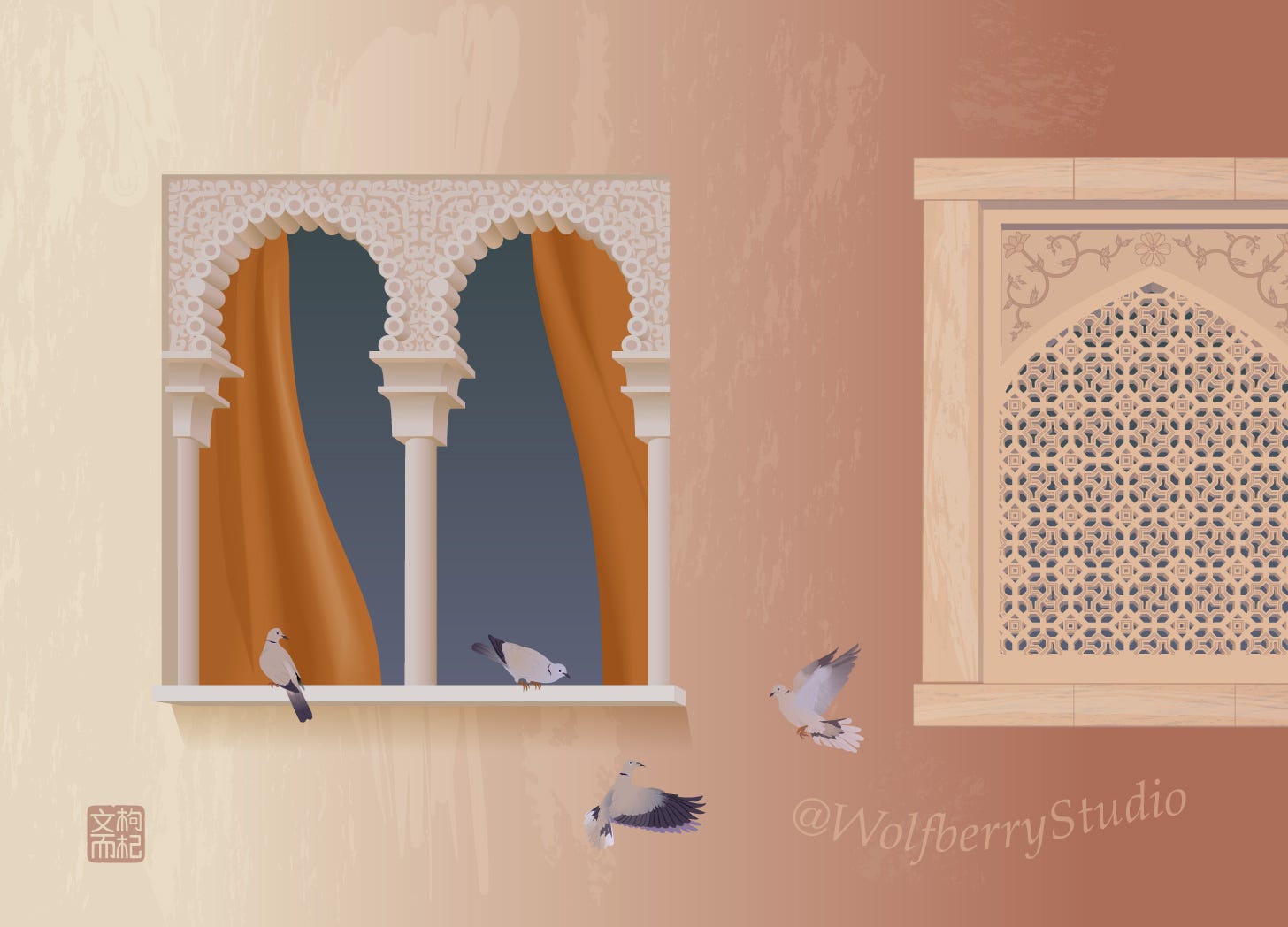Poetry about same-sex love from South Asia, West Asia, North Africa and Al-Andalus (Part 1)
From the 8th century through the 19th century, individuals of Jewish and Muslim backgrounds in the lands between India and Muslim Spain wrote homoromantic and homoerotic poetry.
From the 8th century to the 19th century, Jewish and Muslim poets from Spain, North Africa, West Asia, and India wrote about same sex love.
In the early 13th century, Yehuda Al Harizi, a Spanish Jewish writer who visited Baghdad, recorded a poem allegedly composed by an Iraqi Jew:
“If the son of Amran (i.e. Moses) had seen my lover’s face,
blushing as he imbibed liquor,
with his curls and glorious beauty,
he would not have written in his Torah,
lie not with a male.” [1]
Poem 124 in Chapter 50: Florilegium of Songs, Sefer Tahkemoni
Another translation from Joseph Yahalom and Naoya Katsumata’s paper on the Tahkemoni:
If only Amram’s son (Moses) had seen my beloved’s face
Become ruddy as he drank wine,
And his beautiful locks and gorgeous appearance,
He would never have written in the Torah: “Do not sleep with a man!”
Regardless of what Al Harizi might have thought of that lovestruck poet or the state of Iraqi Jewry in general, literati who wrote about homoerotic desires were quite common in the land where Al Harizi came from (Muslim Spain), as well as in the North African and West Asian lands that he visited.
Poets wrote about same sex love and desire in a variety of languages – Arabic, Hebrew, Kurdish, Persian, Turkish and Urdu. Iraq, Persia, Afghanistan, Mughal India, Turkey, Egypt, Tunis, and Morocco all experienced a flourishing of homoerotic poetry.[2]
Over the next few posts, we will visit these regions and meet non-heteronormative poets who were famous literati in their own right.
Queer Erasure in Translation
Circling back to the earlier male homoerotic poem recorded in Sefer Tahkemoni, it appears that David Simha Segal’s translation rendered the word ‘lover’ as ‘friend’ . The original Hebrew text in Poem 124 in the Florilegium of Songs, the 50th and last story in Sefer Tahkemon,[3] uses the word “dodi”, which could mean “my beloved” (as in the poem’s context), or “my uncle” but definitely not “my friend.”
And unfortunately, this isn’t the only example.
Part 2: Jewish and Muslim writers of homoerotic poetry from North Africa and Muslim Spain
[1] Kraemer, Joel L., Chapter 2, Maimonides: The life and world of one of civilization’s greatest minds
[2] Crompton, Louis, "Male Love and Islamic Law in Arab Spain" (1997). Faculty Publications -- Department of
English. 61. https://digitalcommons.unl.edu/englishfacpubs/61
[3] ספר תחכמוני - שַׁעַר חֲמִשִּׁים / יהודה אלחריזי - פרויקט בן־יהודה (benyehuda.org)




